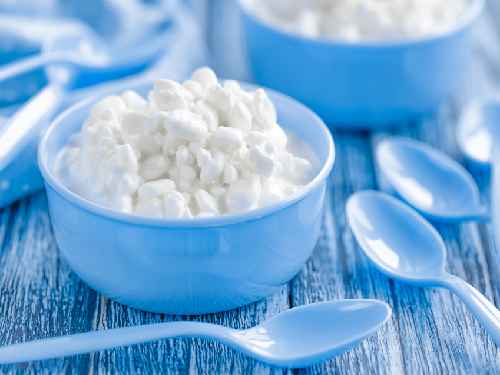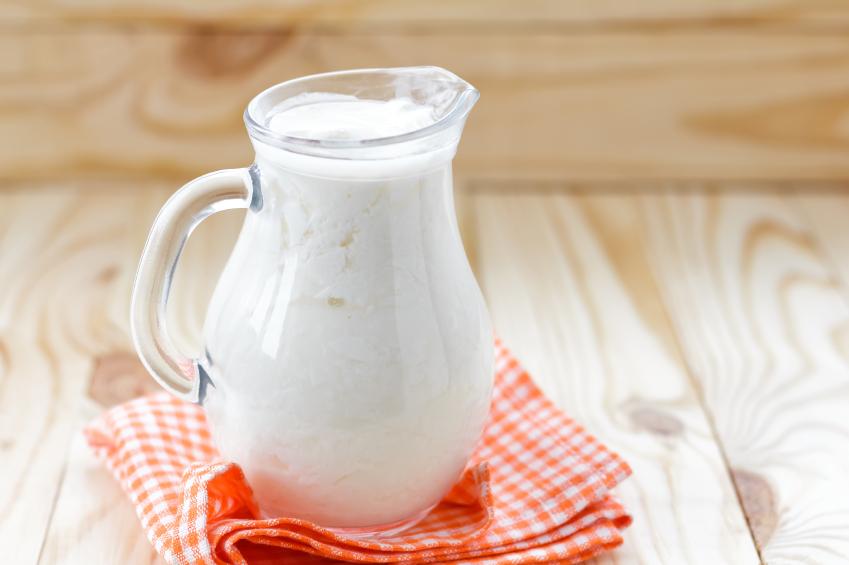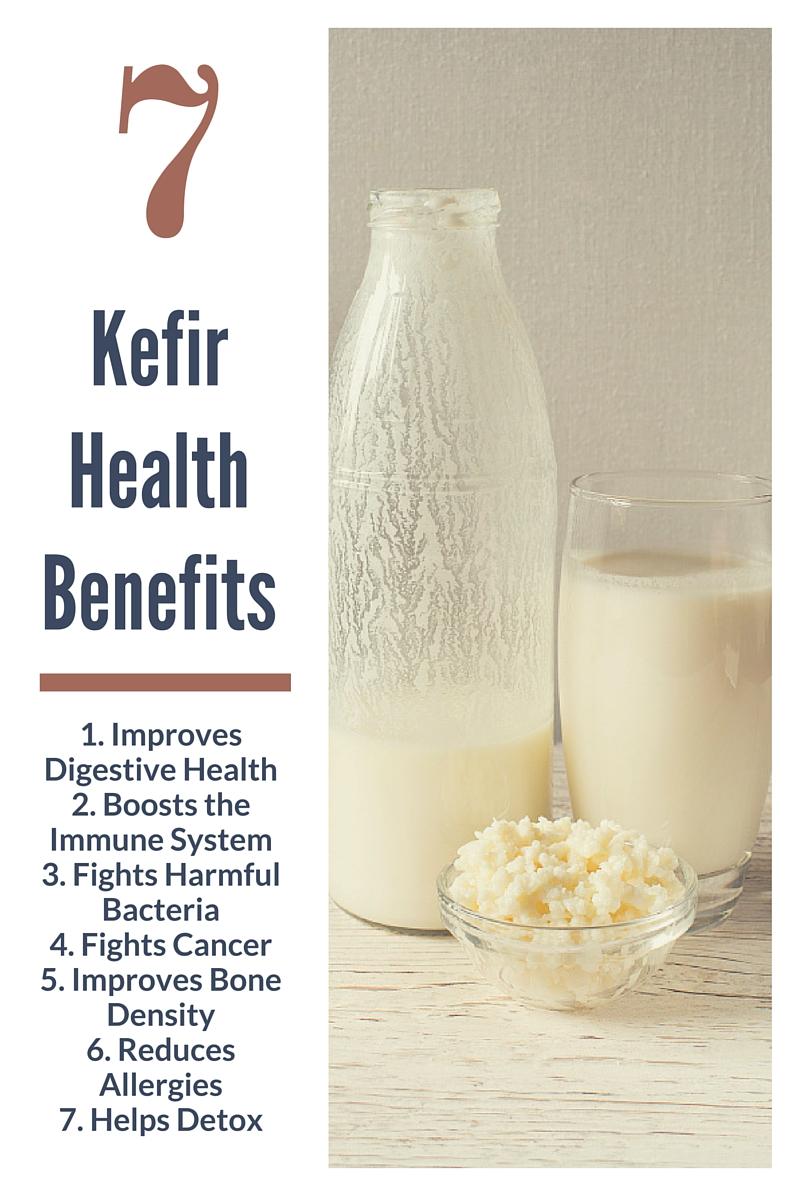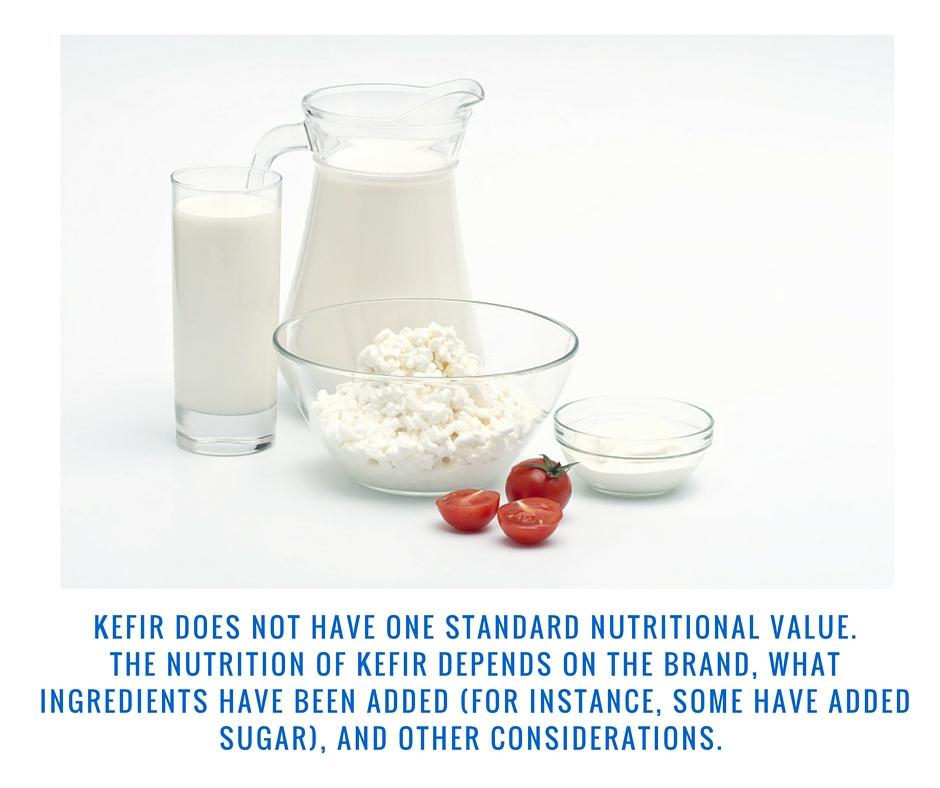 What is kefir? What are the health benefits of kefir?
What is kefir? What are the health benefits of kefir?
If you’re wondering what kefir is, then you probably don’t know about the numerous health benefits of kefir either. Kefir is a type of fermented milk that, in many cases, is used as a powerful probiotic alternative to yogurt.
Kefir is an incredible health food that can particularly benefit digestive health. The name may sound strange, but you don’t need to know the proper kefir pronunciation to enjoy its many benefits. But in case you’re curious, it’s pronounced “keh-FEAR” (like “Cape Fear”) and not KEE-fur (as in “Kiefer Sutherland”).
You’re likely familiar with probiotics and their health benefits. Kefir can have many of the same benefits as probiotics and more. In fact, kefir is often regarded as an even stronger, healthier, more potent version of yogurt.
What Is Kefir?
Kefir is a cultured, creamy beverage and one of the most potent probiotic foods available. It contains both beneficial yeasts and probiotic bacteria strains, making it more effective for gut health than simple probiotics or yogurts.
The name “kefir” comes from the Turkish word key if, meaning “feeling good.” This fermented drink originates from Eastern Europe and is mainly made by adding fresh kefir grains to cow’s milk or goat’s milk.
Kefir has been used for hundreds of years in Europe and Asia for curing health conditions and improving overall health. Nowadays, kefir has experienced a renewed popularity and can be purchased in many grocery stores and most health food stores.
When it comes to kefir and yogurt, the taste is actually very similar. A milk kefir is a creamy, yogurt-like beverage, with a tangier taste. Different ingredients can be added into kefir to sweeten it.
Kefir Nutrition
Is kefir good for you, aside from its beneficial bacteria and yeast? The answer is yes. Kefir contains high amounts of many vitamins, minerals, and nutrients. It’s a good source of vitamin B12, vitamin K2, and biotin, as well as calcium, magnesium, and phosphorous. Kefir is also low in calories, cholesterol, sugar, and fat, making it one of the healthier beverages you can have. Compared to juice, kefir has much less sugar, and compared to most dairy products, it has much less fat.
But it’s not the vitamins and minerals that are kefir’s main draw. Rather, it’s the yeast and probiotic bacteria that are responsible for many of kefir’s health benefits. Probiotics sometimes contain as little as 1 billion colony forming units (CFUs) in each capsule. With kefir, there can be hundreds of billions of CFUs in each glass, which makes it much more potent.
Nutritional Content of Milk Kefir (One Serving, 175 ml/6 ounces):
- At least six grams of protein
- 20% recommended daily allowance of calcium
- 20% recommended daily allowance of phosphorus
- 14% recommended daily allowance of vitamin B
- 19% recommended daily allowance of riboflavin
- 5% recommended daily allowance of magnesium
The calorie intake of milk kefir is not high at all—per serving, it only contains about 100 calories, seven grams of carbs, and three to five grams of fat.
Types of Kefir
If you’re ready to try a kefir probiotic, then you’re going to have to choose what type of kefir you want. There isn’t one definition for kefir, but two different types and then a few variations within, usually depending on the kind of milk you use.
Kefir Milk

Kefir Milk tastes like Greek yogurt.
What is kefir milk? It’s the most popular and common form of kefir. This type of kefir can be made with cow’s milk, goat’s milk, sheep’s milk, or even coconut milk. Typically, milk kefir tastes like Greek yogurt, although it can have a stronger, tartier taste as well. Some brands will have added flavors, such as vanilla or berry.
Water Kefir

Water kefir has a lighter taste than milk kefir.
If you’re wondering what water kefir is, it’s similar to kefir milk but made using sugar water, coconut water, or fruit juice. Water kefir has a lighter taste than milk kefir. It’s also less creamy, with more of a soda-like consistency. Despite the differences, water kefir has the same health benefits as milk kefir.
Coconut water kefir
A delicious beverage made with young coconuts. The probiotics nurse on the sugar that is in the coconut water and it produces a sour, tangy beverage (similar to champagne). Coconut water kefir will keep your immune system and digestive system strong to help ward off diseases. As an added bonus, you’ll begin to notice healthier hair, smoother-looking skin, and less bloating in your abdomen area.
Donna Gates, author of the book The Body of Ecology, states that only half a cup of coconut kefir with your meal will greatly improve digestion of the meal. She also adds that if you drink half a cup before bed, it will help establish a healthier inner-ecosystem.
Kefir Health Benefits
What is kefir good for, you ask? Many different things; kefir has some amazing benefits that make it one of the healthiest foods available (1).
1. Improves Digestive Health
Kefir is loaded with beneficial yeasts and good probiotic bacteria that can make a positive impact on your digestive health. Probiotics are one of the most effective ways to improve digestion, and kefir is loaded with more good bacteria than almost any leading brand of probiotic. Kefir has been known to be an effective treatment for irritable bowel syndrome, inflammatory bowel disease, and other chronic digestive conditions as well as diarrhea, constipation, bloating, and gas. Many digestive disorders arise from an overabundance of bad bacteria in your gut, so adding in good bacteria from kefir may reduce or even cure the problem.
2. Boosts the Immune System
Kefir can also have a positive effect on your immune system, boosting immune function and helping your body fight off harmful pathogens. One study found that probiotics can eliminate infections and resolve symptoms. Drinking kefir could be an effective way to help your body fight off viruses, bacteria, and other illnesses.
3. Fights Harmful Bacteria
There are many types of harmful bacteria that can lodge themselves in the gut; through food poisoning or chronic infections, for example. Some of these bacterial infections can even be life-threatening, such as Helicobacter pylori or Salmonella. Kefir contains a unique probiotic strain that can prevent the growth of Salmonella, H. pylori, and E. coli.
4. Fights Cancer
Research has found that fermented foods may help fight cancer. Fermented foods can inhibit cancerous tumor growths, reduce carcinogenic compounds, and even kill off some tumors in animal studies. One study found that regular consumption of kefir could help stop the growth of breast cancer.
Probiotic fermented dairy products have been known to slow down tumor growth by reducing its formation of carcinogenic compounds, but also by stimulating the immune system. One study reported that kefir reduced the number of human breast cancer cells by almost 57%, compared to only 14% for those who consumed regular yogurt.
5. Improves Bone Density
Studies have also found that consuming kefir can improve bone density, making kefir an effective option to help manage and treat osteoporosis. Not only does kefir contain many of the nutrients and minerals needed for good bone health (such as calcium, magnesium, and vitamin K2), but the probiotics in kefir also increase absorption of these nutrients. Vitamin K plays an essential role in calcium metabolism, and consuming this nutrient has been shown to reduce the risk of getting a fracture by an astonishing 81%.
6. Reduces Allergies
Believe it or not, kefir can actually help put a stop to your allergies or asthma; studies have found that kefir has positive benefits for both. It can reduce inflammatory markers in your body, leading to a reduction in allergic symptoms.
7. Helps Detox
Environmental toxins, as well as those found in food, can increase the risk of cancer, cause numerous health effects, and literally change DNA. The bacteria in kefir can help detox your body, binding (that is, killing) these toxins.

Why Kefir Is More Potent Than Yogurt
Yogurt is a well-known probiotic and for a while now, it was seen as one of the best probiotic choices for a diet. Then kefir came along—a much more potent source of probiotics. Kefir grains contain about 30 strains of bacteria and yeast, illustrating that it is a rich and diverse probiotic source you should add to your diet.
Because kefir contains over 30 different microorganisms, it is much more potent than any other probiotic dairy product.
The lactic acid bacteria found in kefir is significantly lower in lactose than milk is. It also contains enzymes that will help break down the lactose even further. Because of this, kefir is generally tolerated in a positive way by most people who are lactose- intolerant.
How Is Kefir Made?
Not only is eating it good for you but making kefir is also very easy. If you’re not sure about store-bought brands, you can easily make your own kefir at home.
Kefir is made using two tablespoons of starter cultures that contain yeast and bacteria, also known as “grains.” These starter grains are added to a glass jar containing the fluid of your choice (as mentioned above, depending on whether you want to make kefir milk or water kefir), and then sealed to ferment for 12 to 36 hours at room temperature. Make sure you leave an inch of air at the top of the jar. Once the kefir has been created, you can sift out the grains and use them over and over. You can purchase kefir grains at a health-food store.
You can experiment with kefir, adding flavors and new ingredients, or even making new foods from kefir milk. For instance, if you’re wondering what is kefir cheese, it’s simply cheese made out of kefir milk.
Kefir Recipes
Hard Kefir Cheese
Ingredients:
- Finished milk kefir
- Butter muslin, cotton bag, or tight-weave cloth
Directions:
- Pour the milk kefir into the cotton bag.
- Hang the milk kefir above a bowl or jar and drain the whey for about 24 hours. Once it has stopped dripping, wrap the cheese in a towel or cloth and put it in a colander or strainer.
- Set a plate on top of the cheese and weigh it down using something heavy. Continue to put pressure until the dripping stops.
Milk Kefir Vinaigrette
Ingredients:
- 1/4 cup of milk kefir
- 1/4 cup of apple cider vinegar
- 1/2 cup of extra virgin olive oil
- 1 garlic clove, minced
- 1 teaspoon of Dijon mustard
- 1 teaspoon of honey
- Salt and pepper to taste
Directions:
- Put all of the ingredients into a pint-sized jar.
- Put a lid on the jar and shake it.
- Keep in the refrigerator for about a week for full effect.
Creamy Orange Kefir Fruit Salad
Ingredients:
- 3 oranges (large)
- 1/2 cup of kefir
- 1 tablespoon of organic honey
- Dash of vanilla extract
- 2 to 3 tablespoons of chopped pistachios
Instructions:
- Peel and cut the oranges into bite-sized chunks, removing all the seeds.
- In a separate small jar, combine the kefir, vanilla, and honey. Shake the jar thoroughly until all the ingredients are mixed well.
- Pour the kefir, honey, and vanilla dressing over top of the orange chunks, cover them, and refrigerate for about 25 minutes to allow the flavor to meld.
- Sprinkle pistachios on top.
Kefir is an amazing health food with numerous benefits for digestive and overall health. There are different types of kefir, but they all contain beneficial yeast and good probiotic bacteria, as well as important nutrients. Drinking kefir can help many health conditions, and making your own kefir is easy. So buy some grains, get started making your own delicious drinks, and enjoy the many health benefits of kefir!
Read next:

